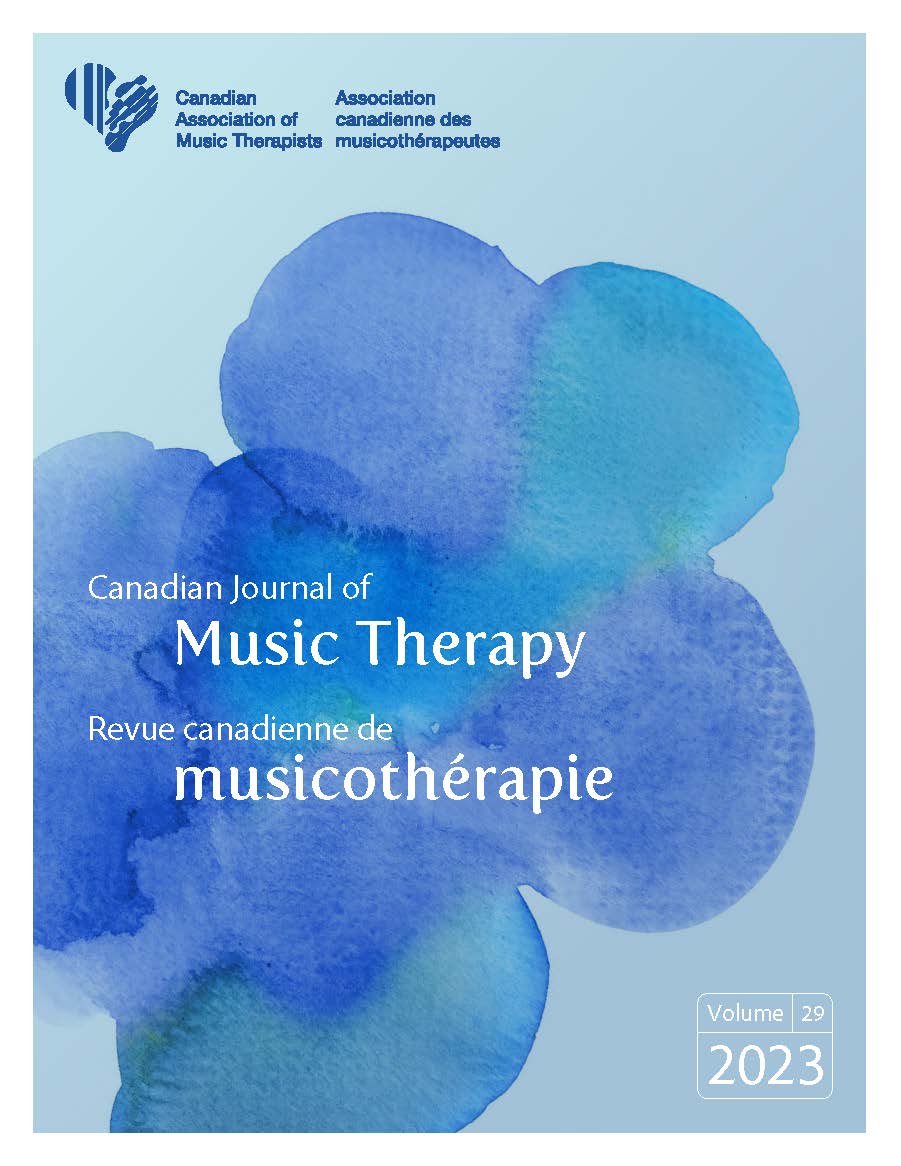Receptive Music Therapy and Anorexia Nervosa in Hospitalized Adolescents.
Presentation of a Psychomusical Relaxation Protocol: The “DéPi-AM”
Keywords:
anorexia nervosa, eating disorders, receptive music therapy, psychomusical relaxation, relaxation, adolescents, hospitalization unitAbstract
The treatment of anorexia nervosa remains challenging, particularly during the acute
phase that requires hospitalization. In France, traditional care centres on talk therapy
with the patient and their family; although non-pharmacologic and non-verbal therapies
may be used, they have not been applied systematically. After a review of the literature
on the use of music therapy for eating disorders, focusing primarily on anorexia nervosa,
we will present the modalities of a group protocol of receptive music therapy (which
we have termed DéPi-AM) applied to hospitalized adolescents suffering from anorexia
nervosa. For more than two years, we used DéPi-AM in institutional situations that
patients were experiencing as highly anxiety-inducing. We will discuss the use of this
protocol through qualitative clinical data and observations from our practice. Our
preliminary results point to an increase in negative emotions in the absence of a music
therapy session and an increase in positive thoughts and a sense of relaxation during
the session. We will also recommend a more extensive reflection on the use of music for
relaxation within music therapy practice and attempt to define a patient profile for whom
this therapy could prove useful when integrated into a course of multidisciplinary care.


